- Old Draft: Beatles Folk Memory 1970-1995 - December 8, 2025
- Lights are back on. - December 8, 2025
- From Faith Current: “The Sacred Ordinary: St. Peter’s Church Hall” - May 1, 2023
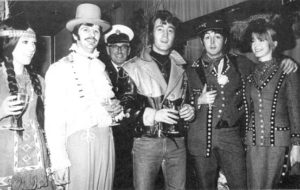
December 21, 1967: John, Paul and Ringo at the party celebrating the BBC’s transmission of “Magical Mystery Tour.”
This morning, as I was shaving — a marvelously quick operation now that I have a beard — “Breakfast With the Beatles” played a blast-from-the-past radio ad touting the then-new LPs Magical Mystery Tour and Wild Honey. (So we can date the spot to late December 1967/early 1968). I suddenly felt a very warm feeling, a pang of entirely comfortable longing. How nice it would be to hear something like this on contemporary radio, something that I understand fully, by artists I know and like, and would like to buy. This is so unlike my current predicament of feeling completely alienated from pop music — twenty years’ behind, at least, and with no great belief that time spent catching up would be rewarded.
Perhaps this warmth of mine was longing for a time when there was simply much less cultural product on offer — for media monoculture, where an individual could have some ability to judge the flow of new work as it was released by the gatekeepers. Consider the snobby record store employee or comic book clerk: consuming pop culture seems more like a job than a pastime today. Quality aside, my commonest feeling when confronted with all the new books, songs, cartoons, and various other forms is simply overwhelm. Some of this is age, but some of it is that in December 1967, there was simply so much less work being thrown up for audience review.
But the monoculture was dominated by white, male voices — both as performers, and also as gatekeepers and tastemakers — and so I’m willing to admit that maybe that radio spot was simply speaking to me in the argot of demographics. It was a stray transmission from the White Guy Era, a time when my race and gender artificially dominated the cultural conversation. Maybe that’s what I was digging, without even knowing it. But it was cozy, let me tell you.
A thought that keeps popping up on this blog over the past several years is the relationship of media monoculture and the Beatles. Would the Fabs have been as epochal in today’s media environment? Can anyone be, and is that a good thing? How much of their success and artistic brilliance comes from being heroes of the monoculture? The scene, any scene, is simply too big today for anyone to tower over it like the Colossus of Rhodes; and how much of what makes the Beatles THE BEATLES, comes down to less diversity and more focus on fewer items?

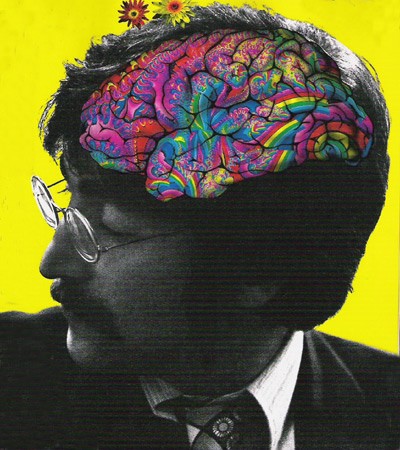

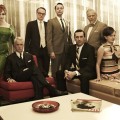
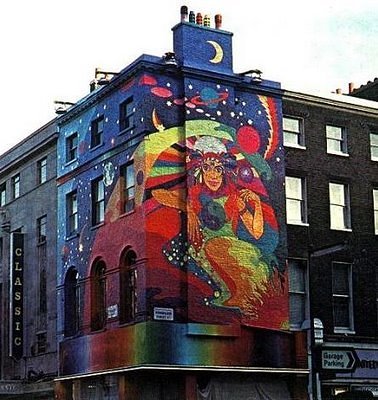


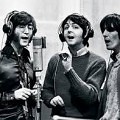
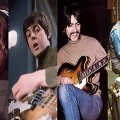

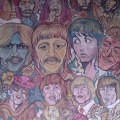


Well, they had talent (which is more than I will say for some of the so-called “artists” out there, today.) And they were unique with every step forward. I would say that the Beatles could have had a significant success except for the fact that a portion of today’s public has all but lost its taste in music.
Great post, Michael!
I never know what to say to hypotheticals like that. The Beatles happened when they happened. (Brilliant statement, right? Feel free to write that down.) Everything (or much) that has followed in music has occurred because of them, so asking how they’d be received in today’s environment doesn’t make sense because there wouldn’t be today’s environment without them.
I don’t think pop music has gotten any better or even as good as The Beatles since them–with respect to the elements that made them so good: melody and harmony as well as that unique combination of spontaneity, arrangement, savvy and open-heartedness.
Instead, pop music did other things—it got to be more about dancing and electronic slickness and rapping. As though, since artists couldn’t compete with what The Beatles did, they just ignored it and focused on other things.
Can pop music do what the Beatles did any better than the Beatles did it?
Agreed, Chris. What the Beatles excelled at was creating tunes with beginnings, middles and ends – in other words, melodies. A lot of these melodies are so strong they pass the A Capella test: they sound good even when sung unaccompanied. (Try that with Subterranean Homesick Blues!) Unfortunately, writing melodies as good as that is extremely hard to do – so naturally it fell out of fashion not too long after the group split up. I believe that most things that have lasting influence have it because they’re easy to copy, not because they’re good: culture, like water (and capitalism in general), follows the path of least resistance. (On his old site Starostin refused to count influence on others as a factor in a band’s overall rating, simply because influence can be bad.)
.
The trend in music since 1975 or so has been a gradual withdrawal from spontaneity and unchecked feeling towards the artificial, slick, processed and packaged. The emotional effects of such music are more predictable, making the stuff easier to market (not to mention easier to reproduce again and again) and less likely to upset potential customers – plus it’s largely made by quietly professional producers rather than unruly types like Jim Morrison and John Lennon. Safer that way. A few years ago a scientific study of today’s radio was carried out, and it proved that chart songs are using an ever dwindling pool of chord progressions: market research has narrowed it down to the few that make the most money.
.
Today’s popular music is based not on the Beach Boys, Queen or the Kinks, but on the great late ’70s movements: punk, disco, mainstream electronica, rap, hip-hop and New Wave. New Wave and punk largely stripped funkiness and virtuosity out of mainstream rock, leaving a blockier affair that’s much easier to imitate. At the exact same time disco and hip-hop simplified the polyrhythmic funk of James Brown, “blockifying” black music in the same way that punk “blockified” the white stuff. Meanwhile, electronica is – almost by definition – blockier, and more easily controlled, than analogue music. All three musical streams share the same lack of interest in complexity, spontaneity, a wide emotional spectrum, and – melody. 99% of pop and rock music that’s had any success since 1976 has belonged firmly within this new paradigm.
.
The above probably sounds like a diatribe, but it’s actually not. A lot of good music has been produced under post-Year Zero conditions, and not every classic song needs a good melody (Subterranean Homesick Blues sure doesn’t). And of course there are exceptions to the paradigm (astonishingly few though). But what does bother me is that a musician today couldn’t release a Beatlesque song even if they wanted to – for the simple reason that the music would sound so hopelessly out of fashion that no-one would buy it. If you release a song today that sounds like a disco or synth-pop classic from the ’70s or ’80s, it’s retro and you can get a billion views on YouTube (look at Bruno Mars). Release one that sounds like a Beatles tune and it’ll sound prehistoric: Year Zero indeed. Sometimes I think the divide between pre-disco music and post-disco music is even more profound in cultural terms than the one between pre-British Invasion music and post-British Invasion music.
If you want to know what I mean about music becoming less wild and spontaneous, compare any Parliament/Funkadelic song from the early ’70s with one of their late ’70s tracks. That isn’t the story of one band’s decision to slicken up their music, it’s a microcosm of what happened to all commercial music during that period.
Interesting questions, Michael. I don’t think any other artist, or group of artists, could achieve the kind of cultural power the Beatles had in the 60s, due to the multitude of entertainment choices that are now easily available. So in that sense it seems clear that they benefited from the kind of monoculture you describe. But that relationship also seems pretty complicated.
.
I think the Beatles were drawn to music that wasn’t quite part of the dominant culture — they embraced girl group music, for example. Compare the Rolling Stones, who crossed the musical racial divide but not the gender one.I can’t imagine any of the Stones belting out “Boys” or even “Chains,” for example. For all the engineering that girl groups underwent, they did give voice to female longing in a new way, and to me it seems important that the Beatles loved that and incorporated it into their own music.
.
And it’s interesting that the Beates were perceived as a threat by leading spokesmen of the monoculture (William F. Buckley, for example). The split they seemed to be worried about was between young people and the older generation: suddenly the younger generation not only had their own culture, they didn’t appear to be interested in growing up to be like the older generation.
.
Overall I think the Beatles reached the success they did because of monocultural conditions — but they also heralded, and indeed helped to bring about, that monoculture’s end.
.
Would the Fabs have been as epochal in today’s media environment? Can anyone be, and is that a good thing? How much of their success and artistic brilliance comes from being heroes of the monoculture?
.
JohnPaul were a powerful songwriting team. The folks in the Brill building and people like Carole KIng and Smokey Robinson knew the songs were strong enough to justify the mania. Waylon Jennings recalled in an interview sitting in a recording studio with Chet Atkins listening to Rubber Soul and marveling at the chord changes in songs like Norwegian Wood. When Del Shannon heard “From Me To You” he couldn’t wait to cover it.
.
Uncreative showbiz types looked at the Beatles and couldn’t see anything beyond funny hair and loud R&R, just another group with a gimmick. But artists who appreciated the craft of composition understood and loved them. I’m not naive enough to think that good talent always rises (because it often doesn’t) but the Beatles weren’t just good, they were genius. And even without a monoculture, something that great is bound to go “viral” (as the kids today say).
I don’t think for a moment that monoculture made the Beatles. It may have contribute to Beatlemania in the States, but I don’t think it can be given credit for the Beatles’ sound at any stage in their career.